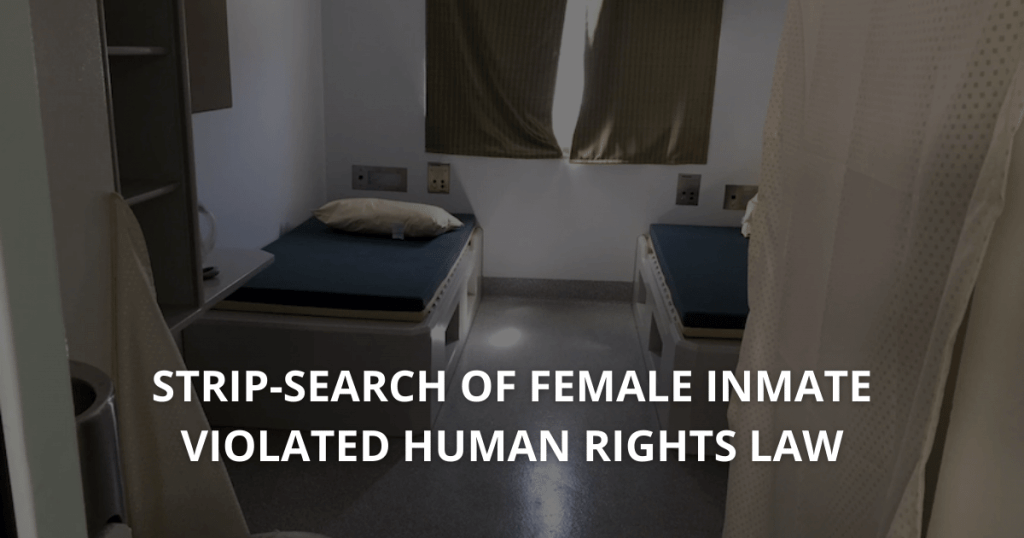The forcible strip-search of a female inmate at a Canberra jail earlier this year breached the territory’s Human Rights Act.
The ACT Inspector of Correctional Services released the review into the strip-search last week. He found that the decision to forcibly strip-search the inmate didn’t comply with the Human Rights legislation.
Indigenous woman allegedly strip-searched in front of male inmates
The 37-year-old woman was on remand at the centre. She had a number of health issues including Borderline Personality Disorder (BPD) and a heart condition. She is also a sexual assault survivor.
On the day of the search, prison authorities denied the woman’s request to attend her grandmother’s funeral “due to logistics”. Consequently the decision caused her to become incredibly upset.
A number of prison guards and nurses tried to move her to the Crisis Support Unit “because they fear for my safety and mental health”, she stated in her letter.
Forcible strip-search on Canberra inmate

According to the inspector’s report, officers moved her to the prison’s crisis support unit where she refused to undergo a strip search. Footage reviewed in the investigation showed the woman yelling “cannot breathe” at various times while detained.
“During the use of force there are up to 12 staff in the immediate vicinity, some at times enter the cell, and others stay by the door or in the corridor outside the cell,” the report states.
“At least two of these staff are male. The use of force could also potentially be viewed live on CCTV by staff at the CSU duty point, in the operations building and in the master control room”.
The report states that while the corrective officers were holding her down, the woman eventually agreed to comply with a search. Subsequently that occurred in front of two female officers in a bathroom. For that reason, the ICS report found the search did not occur in front of male officers.
Unlawful routine strip-searches
The report further stated that routine strip searching on admission to the Crisis Support Unit does not have a lawful basis under the Corrections Management Act 2007 (ACT). Additionally it was an unreasonable limitation of the right to privacy and the right to humane treatment when deprived of liberty under the Human Rights Act 2004 (ACT).
In response to the report, the ACT’s Corrections Minister, Mick Gentleman, said the government would fast-track the purchase of body scanners. These devices limit the need for strip searches.
“ACT Corrective Services was already in the process of procuring a full body scanner for the [prison]. In light of the inspector’s recommendation, we’ll now procure two,” he said.
“I understand strip searches can be stressful and traumatising for both detainees and staff and as a result we would like to minimise strip-searching as much as possible.”
If you believe that you have endured an illegal strip search contact our lawyers now. We may be able to get compensation for you.






